(239) 687-5300
In order to maintain satisfactory academic progress (SAP) at Ave Maria School of Law, students must make measureable academic progress toward completion of the Juris Doctor degree offered here. Federal regulations require evaluation of both quantitative and qualitative academic progress for students who are receiving funds under the Federal Student Aid (Title IV aid) Programs at AMSL, namely:
- Federal Direct Stafford Loans
- Federal Direct Grad PLUS Loans
- Federal Work-Study
All periods of enrollment are included in the measurement of SAP, including terms in which the student enrolls but is not receiving Title IV aid.
QUANTITATIVE STANDARDS
Maximum Time Frame
Financial aid eligibility is limited to 150% of the of the program length. Students must successfully complete a minimum of 90 credit hours to earn the JD degree. AMSL measures a student’s timeframe in attempted credit hours. Therefore, a student may not attempt more than 150% of the required minimum 90 credit hours (90 x 150% = 135).
Credit toward a JD degree must be earned by the end of 5 years after a student has begun the study of law at an American Bar Association approved law school.
Credit Hour Completion Rate
The credit hour completion rate reflects the pace at which students must progress through their program of study in order to insure that they are able to complete their program within the maximum timeframe. Students are expected to complete at least 67% of the cumulative credit hours attempted during all terms of enrollment. The completion percentage is calculated by dividing the cumulative hours that have been successfully completed by the cumulative hours attempted.
Attempted hours is defined as all courses in which a student is enrolled after the add/drop period has ended for the term and for which academic credit will be earned. This means that a course from which a student withdraws after the add/drop period has ended will be considered attempted hours. All attempted hours will be counted whether or not Title IV aid was received.
Attempted hours also include the following courses:
- Withdrawals, incompletes, no grades and failing grades
- Failing grades in pass/fail courses
- Repeated coursework
- Transfer credits, including credits from domestic and international study abroad programs
QUALITATIVE STANDARD
To maintain academic good standing, first-year students must achieve a minimum cumulative grade point average of 2.000 or above upon completion of the second semester of the first-year and each subsequent semester.
Second- and third-year students must achieve a minimum cumulative grade point average of 2.000 or above at the end of each semester.
EVALUATION OF ACADEMIC PROGRESS
At the end of each term of enrollment, students will be evaluated for satisfactory academic progress.
Financial Aid Warning
Students who fail to meet the SAP standard will automatically be placed on financial aid warning as long as the student was meeting the SAP standard during the previous term of enrollment. The length of financial aid warning will not exceed one term of enrollment, whether or not Title IV aid is received. Students placed on financial aid warning continue their eligibility for Title IV aid.
Financial Aid Suspension
Students who exceed 150% of the maximum time frame for completion of the degree requirements are not eligible for financial aid warning and will be placed on financial aid suspension, and will immediately be ineligible for Title IV aid. There is no warning period.
Students who fail to make SAP for two consecutive terms of enrollment will be placed on financial aid suspension until they are able to meet the SAP standard. During financial aid suspension, students are not eligible to receive Title IV aid. In order to re-establish their financial aid eligibility, students must successfully complete one term of enrollment and meet the SAP standard.
SPECIAL CIRCUMSTANCES AND THE APPEAL PROCESS
Students who are on financial aid suspension due to failure to meet the SAP standard and who have extenuating circumstances affecting their ability to meet the standard may appeal their status. Students may appeal their SAP status one time for each term of enrollment. Extenuating circumstances include: death in the family, withdrawal for military service, serious personal illness or medical issues, emotional stress and other special circumstances. The appeal is given by the student to the Associate Dean for Academic Affairs. The SAP appeal must include an explanation statement that includes the following:
- Explain what happened – why the student was unable to maintain SAP.
- Explain what has changed – the corrective measures the student has taken or will take to achieve and maintain SAP.
Financial Aid Probation
If the student’s SAP appeal is approved, the student is on financial aid probation; the Associate Dean for Academic Affairs will develop an academic plan to insure that the student will meet SAP standards by a specific time. In this case, the student will not be required to meet the SAP standard set for the in the policy but must follow the academic plan instead.
Once the student fails to follow the academic plan provided by the Associate Dean for Academic Affairs, the student is not eligible for financial aid until they meet the SAP standard or successfully appeals their status.
If the student files subsequent appeals, the explanation statement must include information about what has changed since the last appeal.



